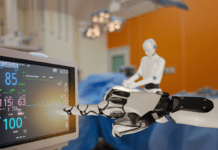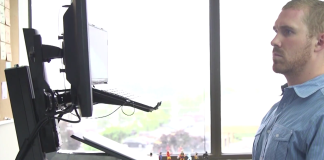Tech Report
We can best understand the effects of COVID-19 on real patients by studying the clinical information from those who have had the disease.
We now have a medical school that is working on recruiting patients to share their real-world medical data in order to better understand COVID-19 using artificial intelligence (AI) and personalized apps.
The University of Central Florida College of Medicine has a new division of AI that is developing personalized applications around real-world patient data.
The goal of this division is to train, test, and validate AI that can predict disease outcomes for patients.
Just making sense of the vast amount of data to be collected from patients can only be done with the help of machine learning in the context of a medical school where both human and artificial intelligence should be developed.
By having medical students review real patient data to actively teach AI algorithms to predict the course of the disease, UCF COM is charting a bold data-driven path for AI in medical research.
Their CovidImaging.US research study allows patients to enroll and share their chest X-rays and clinical experiences for the disease.
They’ve spent 3 years laying the groundwork, getting IRB and HIPAA approved, making sure all legal and ethical requirements were in order. As a participant, you can rest assured your information is kept private and secure.
Your imaging will be shared anonymously for research, and you can access your chest X-rays at any time once you remain enrolled in the study. They will then take your data and use AI to interpret and build data sets correlating to other anonymous participants in order to develop AI that will assist in combatting COVID-19.
This study represents one of the first research studies in which patients can donate their chest X-rays directly. There’s no other medical school lab conducting a study like this. If you’ve had chest X-rays for COVID-19 at any time, you may qualify for this study.
To participate, please visit CovidImaging.US today.









